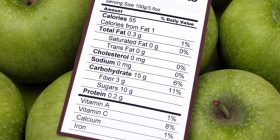If you have diabetes, you’ve probably heard this question many times: “Can eating sugar cause diabetes?” The simple answer is no; however, there are some factors that are worth exploring.
Sugar and diabetes: it’s not so sweet and simple
Type 1 diabetes is an autoimmune disease. It happens when the cells in your pancreas that produce insulin are destroyed by your immune system. No amount of sugar in your diet – or anything else in your lifestyle – causes type 1 diabetes.
To learn more about type 1 diabetes, click here.
Type 2 diabetes is caused by a number of factors – including being overweight. Weight gain occurs when you take in more calories than your body needs, and sugary foods and drinks generally contain a lot of calories. So, if eating too much sugar is making you gain weight, then you are increasing your risk of type 2 diabetes. That said, type 2 diabetes is a complex disease, and eating sugar – or being overweight – is unlikely to be the only reason why it develops.
To learn more about the risk factors for type 2 diabetes, click here.
What’s the link between sugar and type 2 diabetes?
While sugar consumption alone doesn’t cause type 2 diabetes, some research has shown that drinking sugary beverages is linked to the disease.
A meta-analysis was recently published regarding the link between sugar-sweetened drinks and diabetes. (A meta-analysis combines the results of a number of scientific studies.) Eleven studies that involved more than 300,000 people were analyzed. The researchers found that people who drank two or more servings of sugar-sweetened beverages per day had a 26% greater risk of developing type 2 diabetes than those who drank one sugar-sweetened drink per day. A single serving was defined as 12 ounces (about 350 mL).
Diabetes Canada position statement on sugar
A recent Diabetes Canada position statement recommends that people should avoid drinking sugar-sweetened beverages to help prevent type 2 diabetes.
Sugar-sweetened beverages include the following:
- Regular pop
- Sports drinks
- Fruit drinks
- Lemonade
- Blended coffee drinks
- Sweetened iced tea
These drinks contain large amounts of sugar, calories, and have virtually no nutritional value. In fact, a single serving of pop contains about 40 grams (10 teaspoons) of sugar, which is 80% of the recommended daily sugar intake. Diabetes Canada recommends a maximum of 50 grams (12 teaspoons) of sugar per day for all Canadians – whether or not they have diabetes.
There are many reasons to control the amount of sugar you consume, and reducing your risk of obesity and type 2 diabetes, are just a few of the important ones!
 Diabetes Care Community Learn, connect and care
Diabetes Care Community Learn, connect and care







